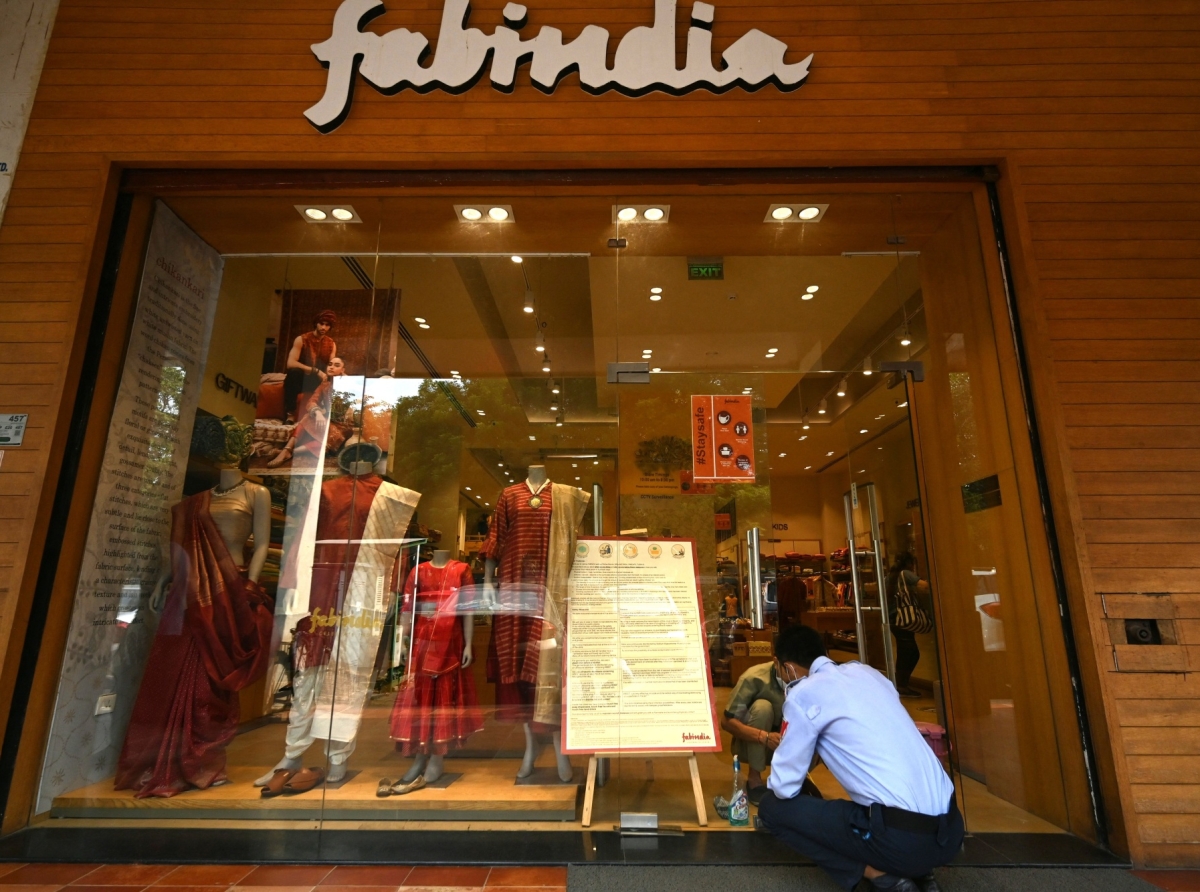Fabindia: A retail success story championing Indian craftsmanship attracts buyers

Fabindia, a name synonymous with handcrafted Indian textiles and artisanal products, has carved a unique niche in the retail landscape. Founded in 1960 by John Bissell, an American with a deep appreciation for Indian craftsmanship, Fabindia has grown into a multi-crore empire with a loyal customer base.
With a valuation of over Rs 17,000 crores and over 400 stores spread across India and internationally, Fabindia is a significant player in the retail sector. Fabindia is known for its commitment to ethical sourcing, traditional Indian techniques, and sustainable practices. This unique brand identity resonates with customers seeking quality and social responsibility. What makes it stand out is that it works directly with artisans across rural India. Fabindia empowers local communities and keeps traditional crafts alive. What’s more, Fabindia prioritizes fair wages and safe working conditions for artisans, while using eco-friendly materials and packaging. This ethical approach attracts a growing segment of conscious consumers. Starting with textiles, Fabindia has expanded into a wide range of products like clothing, accessories, organic foods, and personal care products. This diversification caters to a broader customer base.
Standing out from the crowd
Unlike competitors who might focus on fast fashion or mass-produced goods, Fabindia offers a unique value proposition. It empowers rural artisans, promotes sustainable practices, and celebrates India's rich heritage, all while delivering high-quality products. Fabindia's profitability stems from several factors:
Loyal customer base: By consistently delivering quality and upholding ethical values, Fabindia has built a strong and loyal customer base.
Strong brand recognition: The brand is synonymous with authenticity and sustainability, attracting a premium customer segment willing to pay a slight price increase.
Efficient sourcing network: Fabindia's direct sourcing from artisans helps cut costs and ensures fair compensation for their work. Fabindia's success hinges on its robust sourcing network. The company directly works with over 22,000 artisans and craftspeople across 21 Indian states. This ensures quality control, fair compensation for artisans, and the preservation of traditional skills.
While Fabindia's core business revolves around traditional crafts, it leverages technology effectively. The company uses technology across various areas. In inventory management it streamlines stock management across its vast network of stores. Technology is used to build stronger customer relationships through loyalty programs and targeted marketing. Also, it offers convenient online shopping experience for customers who cannot visit physical stores.
Perhaps these are the reasons why India’s top business conglomerate, the Tata Group is now looking at Fabindia with a lot of interest, as there are talks of n impending acquisition. So why is the Tata Group interested?
Market consolidation: A potential acquisition of Fabindia would strengthen the Tata Group's position in the ethnic wear segment, complementing their existing brands like Westside and Utsa.
Shared values: Both Fabindia and the Tata Group prioritize ethical sourcing and sustainability. This shared vision makes a potential partnership attractive.
Fabindia's success story is a testament to the power of tradition, ethics, and a commitment to quality. By staying true to its core values and adapting to the changing retail landscape, Fabindia has not only empowered artisans but also carved a profitable niche in the Indian retail market. The potential acquisition by the Tatas could propel Fabindia to even greater heights, further strengthening its position as a leader in sustainable and ethical fashion.
























